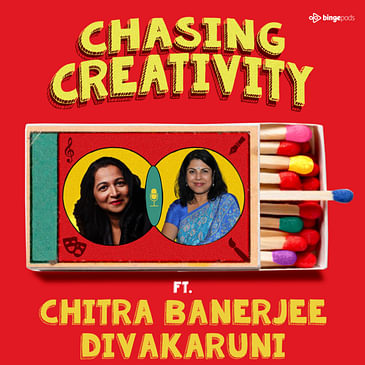In this episode of 'Chasing Creativity,' immerse yourself in the poetic realms and literary brilliance with the esteemed author and poet, Chitra Banerjee Divakaruni. Join host Kiran Manral as they embark on a journey through Chitra's creative landscape, delving into the inspirations, craft, and profound stories that breathe life into her verses and narratives.

A Literary Sojourn with Chitra Banerjee Divakaruni
In this episode of 'Chasing Creativity,' immerse yourself in the poetic realms and literary brilliance with the esteemed author and poet, Chitra Banerjee Divakaruni. Join host Kiran Manral as they embark on a journey through Chitra's creative landscape, delving into the inspirations, craft, and profound stories that breathe life into her verses and narratives.

